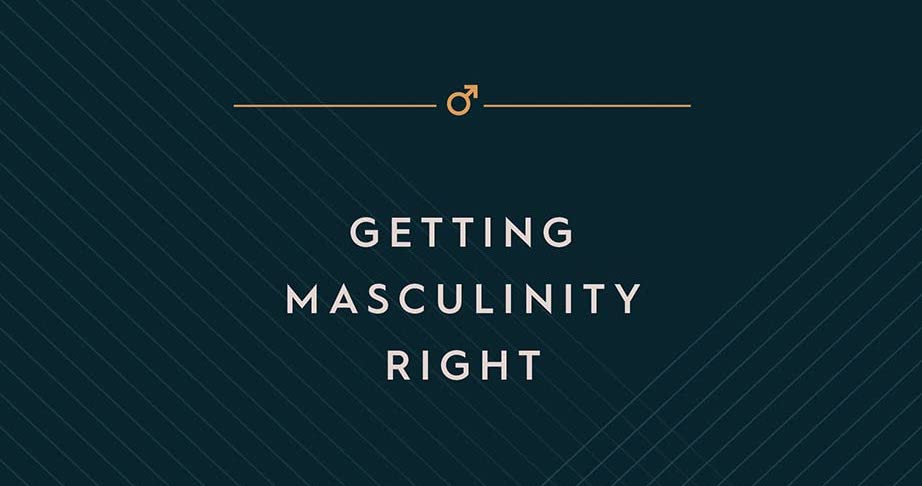Earlier this year I was in Sydney, Australia over a weekend. I wanted to go to church of course, so visited TGC’s site to scour its handy church directory. I found that within walking distance was a little Anglican church that worshipped in a nearby college of the arts. I arrived to find that the church was welcoming a guest speaker that day—one who was formerly a priest and bishop in the Anglican Church but was now director of a fellowship of independent churches. I thoroughly enjoyed the sermon he preached that morning and benefited from it. Then church was over and I went my way and that was that.
I didn’t think much more about it until recently when I was browsing new books, saw an author’s photo, and found myself racking my brain to try to figure out why he looked familiar. Then I remembered: it was the guy who preached that morning in Sydney. Al Stewart’s The Manual is a book to men, for men, and about men—a book about masculinity. And it’s a really good one.
It is well-documented that masculinity has fallen on hard times. In fact, when we hear it spoken of at all, it is most often with the word “toxic” preceding it. If not that, it is presenting a new form of masculinity that looks suspiciously like femininity. Society has many ways of disparaging masculinity but almost no good or healthy vision for it. Little wonder, then, that men are confused about what it means to be a man, to be manly, to be masculine.
Into this void steps Stewart with his attempt to bring his self-described “crusty-old-bloke perspectives.” And, better, his drawn-from-the-Bible and good-old-fashioned-common-sense perspectives.
Wading into the gender wars between progressives and conservatives, between feminists and men’s rights groups, is about as inviting as sticking your head into a bag full of angry cats. But my goal isn’t to fight that battle, or to resolve the gender, transgender, and no-gender problems. My goal is more concrete than that and, I think, more achievable. I want to talk to you, the man reading this book, about what it means to live a life that is spiritually healthy, filled with strength and power and purpose. I want to talk about what it means to ‘man up’.
When he speaks of “power” he means “the ability or opportunity to care for those around you,” which means he calls upon men to be aware of the power they have and then to use it to be a blessing to others. When he speaks of “manning up” he means “to be brave and strong” but in a way that is loving and self-sacrificial. “Real love involves caring for the people around you, and that takes effort. It will cost you time, money, sleep and a thousand other things. It will require discipline, self-control and self-denial. Yet it will be a life in which you know who you are, and what matters to you. You’ll live like a man who’s worked out what matters and who matters, and you’ll put that knowledge into practice in well-thought-out ways every day.” As for “purpose,” he simply wants men to live in the way God wishes for them to live.
The Manual is comprised of 12 chapters or, better, two pairs of six chapters that together are meant to provide a picture of healthy masculinity and to shape men into people “who understand God’s idea of manhood as presented in the Bible, and to help [them] grab hold of God’s wisdom for living as men.” In the first six chapters he looks at masculinity, first to show how society offers a broken form of it, and then to show how the Bible redeems it. He leads his readers toward a distinctly healthy form of it. In the following six chapters he looks at the specifics of living out a healthy masculinity through a man’s different roles: son, husband, workmate, single man, husband, and father. A concluding chapter is evangelistic in tone, calling upon men to follow the greatest man who ever lived.
The book has many strengths and few weaknesses. Stewart writes from a seasoned perspective as one who has plenty of life experience and ministry experience to draw from. He pulls from a wide variety of sources, some of which are fellow Christians and some of which are not. He helpfully distinguishes between edict and advice, between what God commands for all people in all places and what he, as the author, merely recommends based on his own wisdom and understanding. He writes with a tone that varies appropriately between humorous and serious, between gentle pats on the back and swift kicks in the backside (for men need a good measure of both). He writes always with an evident love for God and a sincere, compassionate desire to help men live lives of meaning and purpose.
Stewart’s call to men is to live in a truly masculine way—a way shaped by the Bible. He is convinced that “when men behave badly, it isn’t their masculinity that’s toxic; it’s their humanity.” And so “we need men who are not less masculine, but who are properly masculine; the sort of men who will step up to protect the vulnerable,” for “healthy masculinity is a willingness to take responsibility and use the power you have to care for and nurture those around you.” The Manual is an excellent book and I hope many men will read it (individually or, maybe even better, in groups) and apply its wisdom to their lives. The world, the church, and their families will be better for it.
(It’s a bit difficult to purchase the book in North America. You can try Westminster Books or Amazon; you’ll definitely find it at Matthias Media.)










